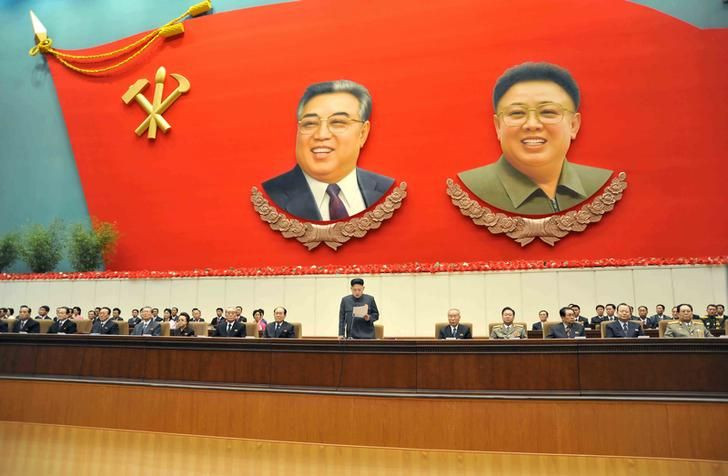South Korea Wants 'Strong Action' If North Korea Performs Nuclear Test

In his first press conference as the new president of the U.N. Security Council, the South Korean ambassador to the U.N. acknowledged that a North Korean nuclear test seemed “imminent.”
“We’ve seen busy activities in the Chongjin nuclear test site,” Kim Sook said, “and everyone is watching.”
The incoming U.S. secretary of state, John Kerry, warned North Korea against a nuclear test Sunday and demanded an end to its "provocative behavior."
Kim acknowledged that the issue of North Korea’s nuclear program was not on the Security Council’s Program of Work for the month of February, but it was in the footnote of ongoing problems with which the Security Council is dealing, including violations of nuclear nonproliferation agreements.
“I would expect very firm and strong measures to be taken once they [the North Koreans] go ahead with such provocations,” Kim said. “I want the Security Council to take firm and strong actions. North Korea has time and again violated the resolutions of the Security Council. You may recall in 2012 they conducted missile tests twice in eight months.
“In January the Security Council passed a strong resolution,” Kim said, referring to Security Council Resolution 2087, which condemned North Korea’s missile launch in December 2012, and demanded North Korea cease all missile and nuclear activity. The resolution also imposed travel sanctions on North Korean leaders and asset freezes on several major North Korean institutions, including the Korean Committee for Space Technology and the Bank of East Land, which the Security Council said provides finances for weapons-related transactions.
“Now they [the North Koreans] are saying that anyone who joins in these sanctions will face retaliation by fire,” Kim said. “This constitutes a serious threat to the security and stability of the Korean Peninsula, northeast Asia and other areas. We cannot sit idly by and do nothing vis-a-vis some devastating provocative action by North Korea.
“This is a serious defiance to the nonproliferation system of the world,” Kim continued. “This is a serious, dangerous attempt to undermine the authority and credibility of the Security Council. We need to make firm, resolute, swift action.”
North Korea has conducted two previous nuclear weapons tests, the first in 2006 and the second in 2009. The first test yielded a low amount of radiation and seismic readings, causing the U.S. to guess that the test was a misfire, although both Russia and China estimated the strength of the blast to be between four and 15 kilotons (15,000 tons of TNT-equivalent, roughly the same yield as the Hiroshima nuclear bomb.) That test drew the ire of the U.N. in the form of Security Council Resolution 1718, which established military and economic sanctions against the country, and demanded a cessation of all nuclear development and activity.
The 2009 test happened underground, and was followed by several missile tests without nuclear warheads. The test was considered a success, but its size and strength are still unknown. This sparked U.N. Security Council Resolution 1874, which imposed further economic sanctions.
North Korea has been receiving food and humanitarian aid from South Korea, China, the U.S., Japan and the EU since its famine began in 1994. Between 800,000 and 1.5 million people died of starvation between 1994 and 1998.
© Copyright IBTimes 2025. All rights reserved.





















